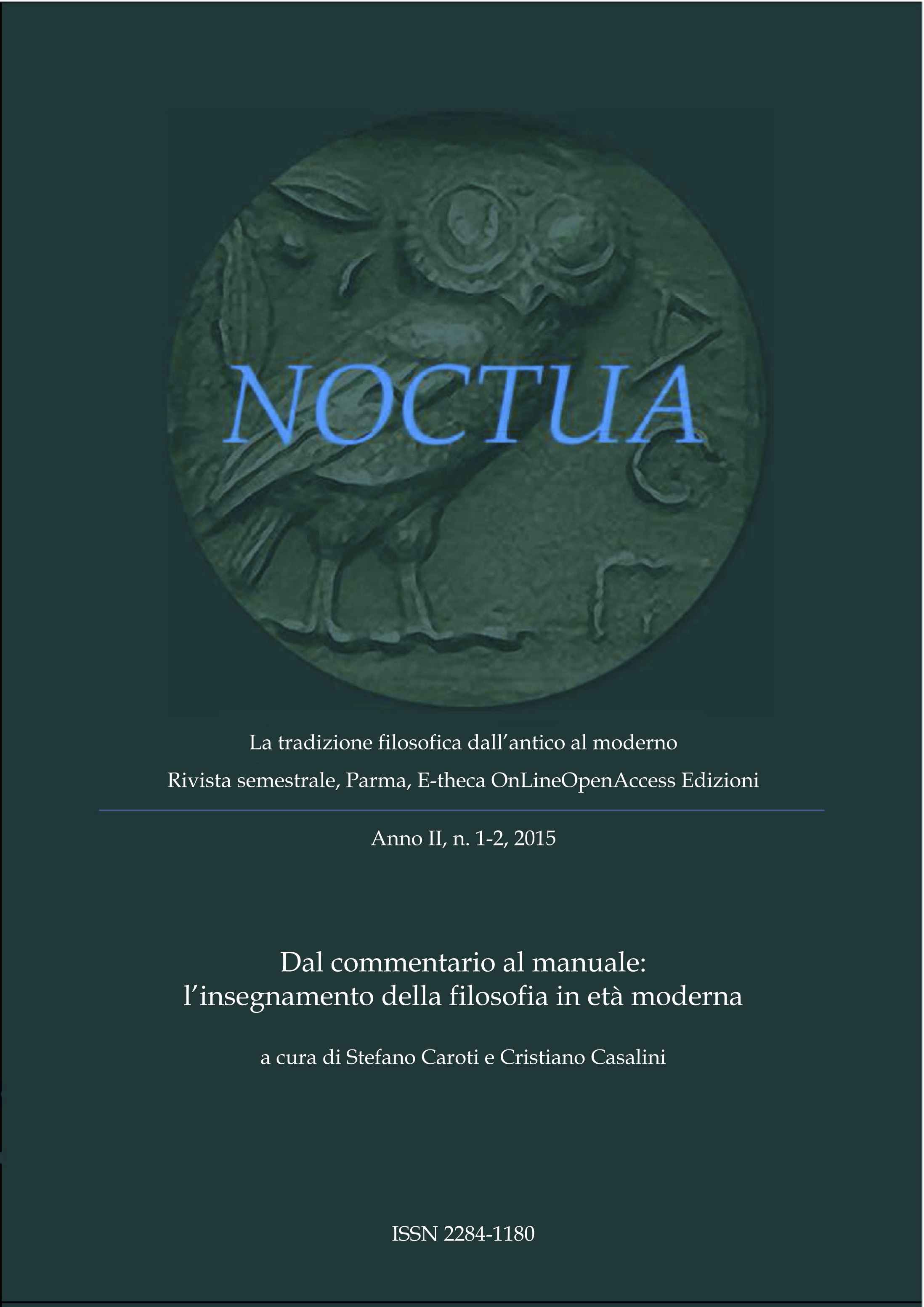I manuali di filosofia nella prima età moderna. Uno sguardo introduttivo
DOI:
https://doi.org/10.14640/NoctuaII1Parole chiave:
Aristotelianism, Cartesianism, commentarium, manuals, teachingAbstract
During the early modern age, the teaching of philosophy pivots on the systematic manual which replaces the traditional ‘commentarium’ also in the schools run by the religious orders of the Catholic Church. When confronted with the rise and diffusion of the new philosophy and of the new science, the authors of philosophical manuals basically follow three different directions: beside the defenders of the Aristotelian-Scholastic tradition and the enthusiastic innovators (who were usually followers of Descartes), there emerges a third conspicuous orientation, which tries to take a middle course and draws inspiration from the ‘philosophia eclectica’ understood as a path independent of the various philosophical schools. At the same time, the historic-philosophical perspective starts to be introduced into the systematic manual of philosophy, to the extent that it becomes an autonomous treatment with respect to the manual itself.
##submission.downloads##
Pubblicato
Fascicolo
Sezione
Licenza
Copyright (c) 2015 Gregorio Piaia

TQuesto lavoro è fornito con la licenza Creative Commons Attribuzione 4.0 Internazionale.
Noctua pubblica contributi Diamond Open Access secondo i termini della licenza CC BY / Noctua publishes Diamond Open Access contributions under the terms of the CC BY license.






